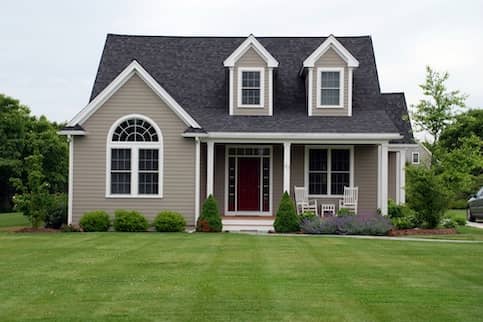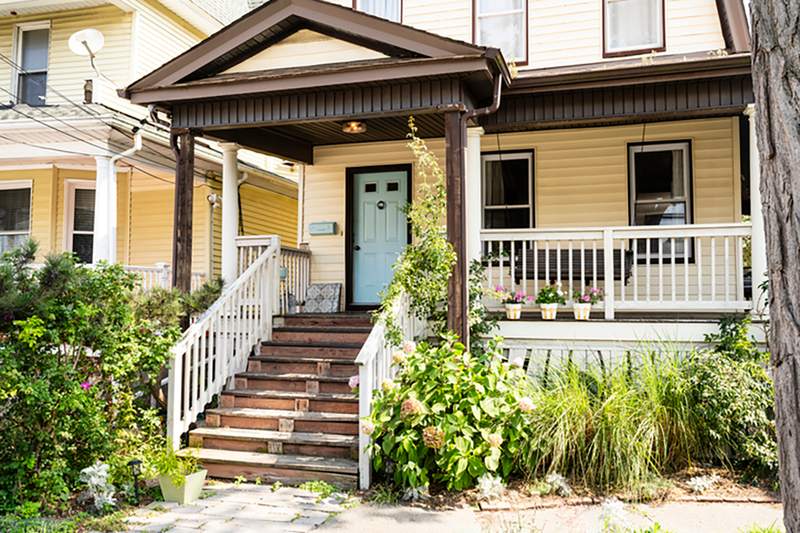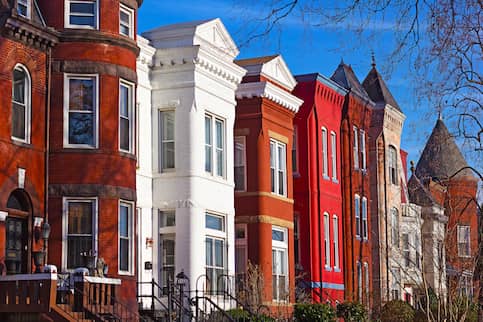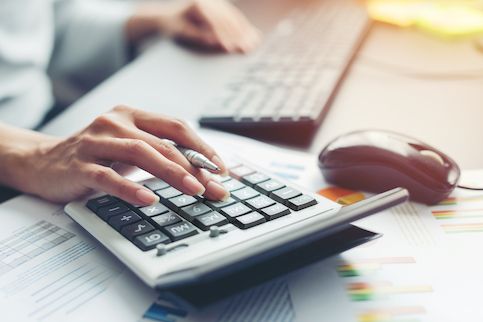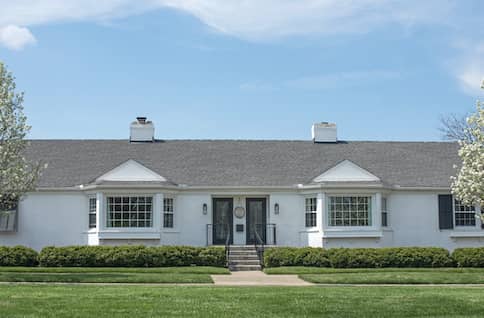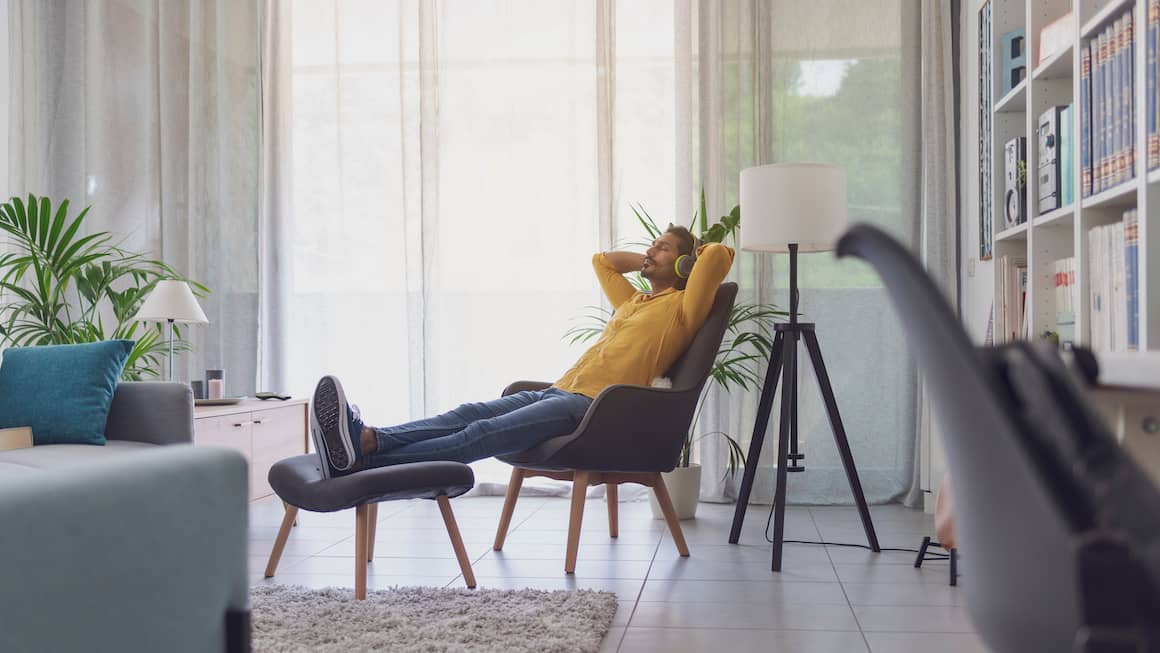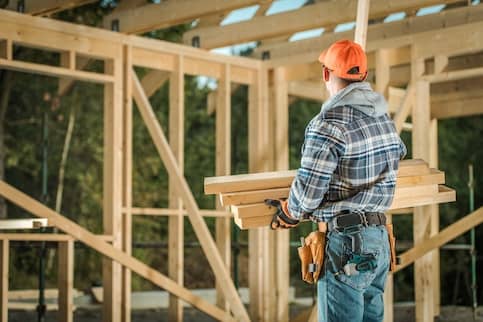Buying rental property involves purchasing residential property that will provide you with rent payments. Rental property can help unlock passive income, boost your earnings and maximize your investment portfolio.
However, it’s important to know exactly what you’re getting into before beginning your first real estate investment journey. Let’s take an in-depth look at how to buy rental property and check out the pros and cons of purchasing an investment property for rental income.
What To Know Before You Start Investing In Rental Property
Buying a rental property is somewhat like buying a house as your primary residence, but the two purchases also havesome differences. You can invest in rental property in various ways, whether you buy a single-family home, a multifamily property or a large apartment complex.
It’s worth considering how you want to maintain a property. You’re in charge of buying a house, finding tenants, collecting monthly rent, paying property taxes and maintaining the property.
Think big picture – would you prefer to manage multiple units (or tenants) or would you rather keep everything on a smaller scale? Would you rather manage upkeep and maintenance on your own or pass that responsibility onto a property manager?
Also note that securing a loan for a rental property will require you to meet requirements and eligibility criteria that go beyond a traditional mortgage. For example, many mortgage lenders require you to have at least a 15% down payment with a minimum 680 credit score for a one-unit investment property.
The Different Types Of Rental Properties
As mentioned, real estate investors can tap into a wide variety of rental property types, including:
- Single-family homes: A single-family home is an independent residential structure on its own property, intended for one family to live in at a time.
- Condominiums (condos): A condo is a residential building with several individual units, which share walls. Tenants individually own each separate unit.
- Townhouses: A townhouse, similar to detached houses, is an individually owned, multi-floor home attached to one or more units. Owners personally take care of the interior and exterior of their home.
- Duplexes: A duplex is a two-family residence with two separate units. The units are attached but have separate entrances to maintain privacy for each. They may share a common wall or floor.
See What You Qualify For
Buy A Home
Discover mortgage options that fit your unique financial needs.

Refinance
Refinance your mortgage to have more money for what matters.
Tap Into Equity
Use your home’s equity and unlock cash to achieve your goals.
The Pros And Cons Of Buying Rental Properties
When deciding whether you should purchase a rental property, it’s best to consider the pros and cons.
Buying Rental Property Pros
The pros of buying a rental property may include:
- Rental income: You’ll get to build and possibly diversify your real estate portfolio with rental income.
- Capital growth: Traditionally, real estate gains value over time. Therefore, rental property could offer you a great opportunity to benefit from an appreciating asset, which you can sell for more than you bought it for.
- Diversifying your investment portfolio: Real estate can help you diversify your investments rather than being limited to traditional investments such as 401(k)s and mutual funds, which can suffer if the stock market tanks or there’s a major economic downturn.
Buying Rental Property Cons
The cons of investing in rental property can include:
- A large down payment: If you take on a rental mortgage, you’ll have to make a larger down payment than you would on a primary residence. Although making a larger down payment has benefits, not everyone can afford one.
- Dealing with tenants: Before purchasing a rental property, make sure you’re ready to work with people from many backgrounds.
- The cost of upkeep: As you probably already know if you own a home, keeping up with home maintenance can be expensive. Consider all the costs – large and small – before purchasing a rental property.
How To Buy Rental Property
Luckily, getting a mortgage for a rental property is similar to using a mortgage to buy a primary residence. Follow these steps that outline and discuss how to buy a rental property.
1. Check The Current Market
Check the current housing market before you determine if you should buy a rental property now or in the future. Is it a buyer’s or a seller’s market? Is it to your advantage to buy a rental property, given the current market situation?
It’s essential to understand the rental rates your rental property and the local market can support. You may get different money for rentals in rural areas than in cities where the cost of living is higher, or in towns where economic growth is rising or declining.
Consult a local real estate agent. Look at social media, public forums, government data and online real estate sites to gain deeper insights. Statistics you’ll want to watch for include average home prices, the ratio of homeowners to renters, and average vacancy rates.
In general, it’s vital to know how much rental income you can expect to bring in from your properties and how easy or difficult it may be to bring in and maintain regular renters.
2. Research Location
Take time to research locations and neighborhoods. Look online, check community websites and walk around various communities to get a sense of their atmosphere, amenities and more. When buying rental property, you’ll want a good neighborhood in an area that can provide the most opportunities for potential tenants.
Real estate professionals, including REALTORs®, should know the area well. A real estate agent can help with comparing property values and providing access to the multiple listing service (MLS) and, potentially, pocket listings.
3. Choose A Property
Decide on the right property and whether you want to take on a fixer-upper house or purchase an already-renovated property. Consider the time and energy required to maintain and repair a property as well as find and keep good renters.
The property you choose should reflect the right combination of all elements – the financial part of the equation, the rental property itself and the type of renters you intend to target.
4. Get Preapproved For A Mortgage
If you plan to take out a loan for your rental property, you should get preapproved for a mortgage first. Preapproval kicks off the process of determining how much you can borrow for a home.
During preapproval, you’ll need to give your lender items such as bank statements and pay stubs. Your lender will do a credit check to learn about your creditworthiness, and they’ll look into your debt and income.
Many types of loans and lenders are out there, so it’s a wise idea to shop around for the best loan terms.
5. Close On The Deal
Your lender will send you a Closing Disclosure at least 3 days prior to closing. Read carefully through this (federally required) document so you clearly understand the loan repayment term, loan amount and interest rate, your monthly mortgage payment, closing costs, money to bring to closing (called cash to close), and loan disclosures.
Compare the Closing Disclosure with your Loan Estimate to make sure no unexpected large discrepancies appear.
At closing, you’ll pay closing costs (fees from your lender and others involved in setting up your mortgage) and your down payment in the form of a certified cashier’s check or a money wire. Any earnest money you paid earlier will go toward your down payment or closing costs.
Finally, bring your photo ID, your Closing Disclosure (to compare to the final paperwork) and proof of homeowners insurance.
See what you can afford.
Quicken Loans® can help you find a lender.
Other Tips To Consider Before Buying A Rental Property
Although you now know the basics of how to buy a rental property, the following guidelines can also help you when you’re thinking about investing in real estate.
Save For A Down Payment
You’ll want to save for a down payment. As mentioned, the minimum amount you’ll need to bring to the closing table for an investment property is usually 15% of your purchase price. However, that figure depends on a combination of factors, including your credit score, debt-to-income ratio (DTI), loan type and property type.
Know Your Annual Expenses
One of the most important pieces to consider is the expenses involved in owning a property. These include some or potentially all of the expenses discussed below:
- Property taxes: Every rental property owner must pay annual property taxes to their local government to support public works and services. Keep in mind that property taxes can change each year, which you’ll need to consider when estimating for the future.
- Property management: If you elect to have someone else manage your property, determine how much it will cost to have a property management company take on this role. Interview several property managers to select the best fit for your plans.
- Utilities: How much will gas, water, electric, sewer and other utilities cost? Will you pass those costs on to your tenants? Ask your real estate agent for any information they can dig up on how much utilities currently cost for the investment properties you’re considering.
- Maintenance costs: Estimate how much repairs might cost so you’ll have a general idea of how much you’ll need to pay out if various items break or stop working. While this may be hard to gauge, you should at least be able to budget for a deep cleaning and an inspection every year.
Calculate Your Return On Investment (ROI)
Before buying a rental property, you’ll want to calculate your likely return on investment (ROI). Make sure your ROI includes costs for renovations and upgrades. Calculating ROI can help you map out your budget and forecast the profit from your investment.
If you paid cash for your investment property, you could calculate ROI by dividing your estimated net profit by your total investment.
Buying Rental Property FAQs
Next up are frequently asked questions about buying a rental property.
Can I buy a rental property without a down payment?
Not exactly. Most lenders require a larger down payment for an investment property than is required for a primary residence. However, if you don’t have enough cash to cover a down payment, some other options may be available.
If you’re currently a homeowner, you could leverage your home equity by using a home equity loan, home equity line of credit (HELOC) or a cash-out refinance.
You may also consider having someone, such as a trusted relative or friend, gift you the down payment money if they’re willing. Or, you may want to seek out a co-borrower – in the form of a family member, friend or business partner – to help you make the down payment.
All of these options carry the risk, though, of your rental property not providing enough return on investment to cover your borrowing costs.
Is buying rental property a good way to make money?
Making a rental property investment can be a super way to generate extra income. But to make money, you’ll need to do all the necessary research before investing in rental properties.
Rental properties often require a large upfront investment that can pay for itself and even net a profit over time. If you’re looking for more of a short-term gain, consider “flipping” a home instead.
What is the BRRRR method when buying a rental property investment?
The BRRRR method stands for buy, rehab, rent, refinance and repeat. It’s a real estate investment strategy that involves buying a fixer-upper, rehabbing the property and renting it out. You’ll then refinance the rental property with a cash-out refinance in order to fund your next investment property.
The Bottom Line
Buying rental property can be a great investment if you follow certain steps and guidelines, which include thinking about more than the cash flow that rent from tenants can bring in. It’s safest to do thorough research before you decide to jump in and become a real estate investor.
Find A Mortgage Today and Lock In Your Rate!
Get matched with a lender that will work for your financial situation.

Melissa Brock
Melissa Brock is a freelance writer and editor who writes about higher education, trading, investing, personal finance, cryptocurrency, mortgages and insurance. Melissa also writes SEO-driven blog copy for independent educational consultants and runs her website, College Money Tips, to help families navigate the college journey. She spent 12 years in the admission office at her alma mater.
